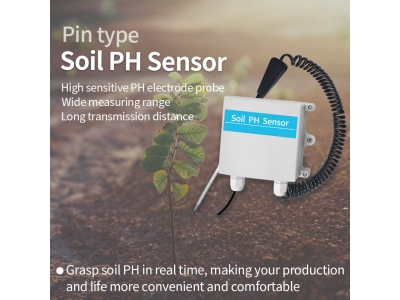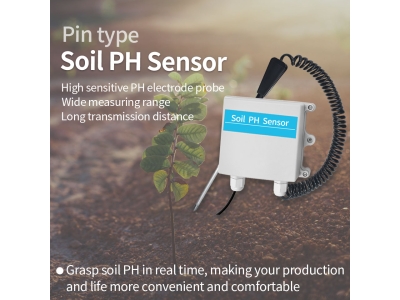Soil sensor technology has emerged as a powerful tool for understanding and optimizing agricultural practices. By providing real-time data on soil conditions, these sensors enable farmers to make informed decisions that can enhance crop productivity, conserve water resources, and promote sustainable farming practices.
One of the key advantages of soil sensor technology is its ability to measure soil moisture content accurately. Knowing the moisture levels in the soil is crucial for efficient irrigation management. Soil sensors provide continuous monitoring of moisture levels at different depths, allowing farmers to determine when and how much water their crops need. This information helps prevent over-irrigation, reducing water wastage and potential detrimental effects on plant health. It also aids in preventing under-irrigation, which can lead to yield losses. With soil sensors, farmers can optimize irrigation schedules and reduce water consumption, ultimately promoting more sustainable water management practices.

Another important parameter that soil sensors measure is soil temperature. Soil temperature affects various biological and chemical processes in the soil, including nutrient availability and microbial activity. By monitoring soil temperature, farmers can gauge optimal planting times, adjust fertilizer application rates, and make informed decisions about crop management practices. For example, certain crops have specific temperature requirements for germination and growth. Soil sensors provide valuable insights into soil temperature patterns, allowing farmers to optimize planting schedules and maximize crop yield potential.
Soil sensor technology also enables the measurement of soil fertility parameters. These sensors can assess key soil nutrients such as nitrogen, phosphorus, and potassium, which are essential for plant growth. By understanding the nutrient levels in the soil, farmers can apply fertilizers more precisely, avoiding excessive use and minimizing environmental impacts. Soil sensors also help identify nutrient deficiencies or imbalances, enabling farmers to take corrective measures and optimize nutrient management strategies. This targeted approach to fertilization enhances crop productivity while minimizing input costs and reducing the risk of nutrient runoff into water bodies.
In addition to monitoring soil moisture, temperature, and fertility, soil sensors can also measure other crucial soil properties. These include soil pH, salinity, and compaction levels, which significantly influence plant health and growth. By continuously monitoring these soil parameters, farmers can identify soil conditions that may be hindering crop performance and take appropriate remedial actions. For instance, if soil compaction is detected, farmers can implement strategies such as deep tillage or cover cropping to improve soil structure and promote healthy root development.
The integration of soil sensor technology with data analytics and precision agriculture techniques further enhances its potential. Soil sensors generate large amounts of data, which can be analyzed to uncover patterns, trends, and correlations. Data analytics and machine learning algorithms help farmers gain valuable insights into the relationships between soil conditions and crop performance, allowing for more precise decision-making. This integration also enables the development of predictive models for crop growth, disease occurrence, and yield estimations, leading to improved resource allocation and sustainable farming practices.
In conclusion, soil sensor technology holds immense potential for unlocking the secrets of soil and optimizing agricultural practices. By providing real-time data on soil moisture, temperature, fertility, and other key parameters, soil sensors empower farmers to make informed decisions that can enhance crop productivity, conserve water resources, and promote sustainable farming. The integration of data analytics and precision agriculture techniques further amplifies the capabilities of soil sensors, enabling more precise and efficient farming practices. As technology continues to advance, soil sensor technology will undoubtedly play a pivotal role in shaping the future of agriculture, ensuring food security, and promoting environmental sustainability.






